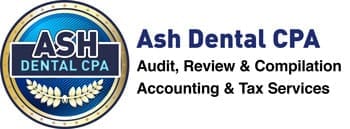Taxes for Dentists: What Does a Dental Accountant Do?

Taxes for Dentists
Taxes for Dentists | The role of accountants and CPAs has evolved from managing account books to financial strategic planning. Business owners now expect more consultation from accountants than ever.
Dental practices are no exception to that rule. A dental accountant comes with qualified accounting background and specialty in the dental industry. An industry-specific accountant that offers tailor-made advice to dental practices.
A dental accountant can help you in various business aspects. From tax preparations to business strategies, and from retirement planning to transaction advisory, you can discuss all key business decisions with a dental accountant.
Let us discuss some major areas of service that a dental accountant offers, including Taxes for Dentists.
Tax Preparation and Planning
Tax preparation and planning, Taxes for Dentists, are two key challenges faced by many businesses. Dental practices also seek professional advice from accountants for these two issues.
A dental accountant that fully understands the dental practice’s accounting requirements can plan an effective tax strategy.
Your tax preparation may only start just before the tax season. It will include preparing supporting documents, filing tax return forms, and providing necessary information to the accountant.
However, your tax planning should start at the beginning of the year. Tax planning requires following a certain path throughout the year. As many businesses file estimated taxes and employment contribution taxes, they need to plan ahead of time to maximize tax savings.
Proactive tax planning can save you thousands in tax costs. For instance, you should discuss an entity structure that maximizes the tax benefits in the long run. Similarly, you should discuss a plan to choose the right retirement contribution plan.
Similarly, researching the right type of tax credits is important. You should plan for business expense deductions and credits as well.
Working with a dental accountant can offer an added advantage of industry experience. It can save you time and offer valuable tax advice, for Taxes for Dentists.
Business Planning
A key role that a dental accountant plays is to help you in business planning. From setting up the account books to business valuations, you can talk to a professional accountant that helps you with key business planning issues.
Business planning starts with choosing the right entity structure. The choice largely depends on your investment options and goals.
A similar business planning challenge arises if you need help in a business buy or sale transaction. The process involves several key steps. You’ll need professional advice in business valuation, business marketing, price negotiations, and closing the deal.
A dental accountant can provide guidance on every business aspect. Every business decision comes at a cost. Business decisions such as new hiring and IT infrastructure that are indirect to the finance department can have a great impact on the financials of a business. Thus, the role of an accountant converges with each aspect of the business these days.
Why Use a Dental Accountant for Taxes for Dentists
The traditional role of accountants was to do the number-crunching. It has become more challenging for accountants and more rewarding for businesses in recent years though.
Dental accountants come with expertise in the dental industry. They can offer better advice to your dental practice in several ways, including Taxes for Dentists.
A professional dental accountant will help you in business growth. They come with first-hand experience of the industry practices. It can help you in business growth by choosing the best facility management methods.
Another key role that a dental accountant can play is in business analysis and performance appraisal. It requires setting the right KPIs for your dental practice. Dental accountants are well-versed with the expectations of dental practices. Thus, they can set the right performance benchmarks for your business.
Lastly, where accounting software can detect errors, it cannot elaborate on the reason. A skilled professional can help you answer why something is wrong. The role of a dental accountant is to help you formulate an effective business plan.
Dental accountants tell you which financial strategies to adopt. They empower you to make informed business decisions.
Learn about Taxes for Dentists with Ash Dental CPA. New clients are welcome.
